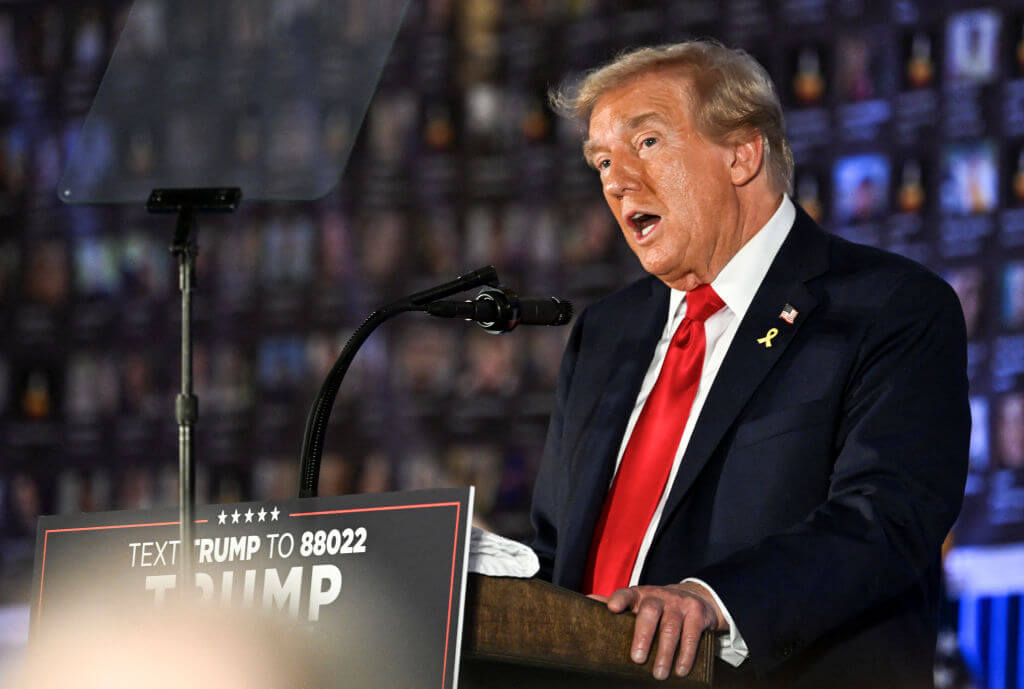Mr. Bush, Don’t Tear Down That Wall
By executive decree, President Bush has decided that “faith-based” institutions, such as churches, synagogues and mosques, are entitled to receive government money for charitable purposes. This is a history-making move. Over the more than two centuries that the United States government has existed, no such policy has ever been approved. Bush’s move shatters all precedent.
Surely, Bush or some savvy people around him are aware of this fact. They must know that the separation of church and state was a principle that was debated and decided even before the Constitution was enacted. In the colonial Virginia Assembly, a proposal was made to use public funds to support a school for the training of ministers of many dimensions. Thomas Jefferson opposed it on the grounds that government money should not be used to support any institution that today would be called “faith-based.” He had the support of the Assembly. In subsequent years, in one case after another, the Supreme Court has repeatedly ruled in the spirit of Jefferson and the First Amendment to the Constitution.
All of which does not mean that Bush has no right to advocate a change. He has. But one would expect that in doing so, he would submit his proposal to the Congress of the United States before reversing all precedent by a fiat from the White House. One wonders why he chose to end run a Congress controlled by his very own party.
Bush may also soon wonder why he did it when Congress is faced with the problem of how much to appropriate for charities, including faith-based charities. The president does not have power, on his own, to levy taxes, determine expenditures or apportion federal funds for this or that purpose. Only Congress may initiate such legislation.
There is nothing in the Constitution that obligates the legislative branch to raise and appropriate funds in line with a presidential edict. Indeed, it might not be inappropriate at this embarrassing moment for Congress to react to Bush’s gratuitous insult to their authority by declaring that they refuse to appropriate a penny for any faith-based charity.
But assuming that Congress bows before the president’s edict, the problem of how to appropriate the money will not disappear. Shall any group of people who call themselves “faith-based” get funds, or will Congress or the Executive Branch decide which are deserving and which are not? The wheeling and dealing will be most revealing.
If any and all outfits that are “faith-based” must get funds, how much shall go to each and on what basis? And how will Congress handle “faith-based” outfits that will mushroom into being to grab a piece of the action?
Finally, will Congress or the executive branch approve funds for organizations that discriminate against employing lesbians, homosexuals, blacks or members of any denomination other than their own? These are not imaginary scenarios. There are faith-based hospitals that refuse to employ Jewish doctors because they are not members of a given Christian denomination.
Finally, what will the present Supreme Court decide when the constitutionality of Bush’s edict is challenged? Will it once more simply rubberstamp Bush’s conduct by the same 5-4 vote that put our present 5-4 president in the White House?
A message from our CEO & publisher Rachel Fishman Feddersen

I hope you appreciated this article. Before you go, I’d like to ask you to please support the Forward’s award-winning, nonprofit journalism during this critical time.
We’ve set a goal to raise $260,000 by December 31. That’s an ambitious goal, but one that will give us the resources we need to invest in the high quality news, opinion, analysis and cultural coverage that isn’t available anywhere else.
If you feel inspired to make an impact, now is the time to give something back. Join us as a member at your most generous level.
— Rachel Fishman Feddersen, Publisher and CEO





















